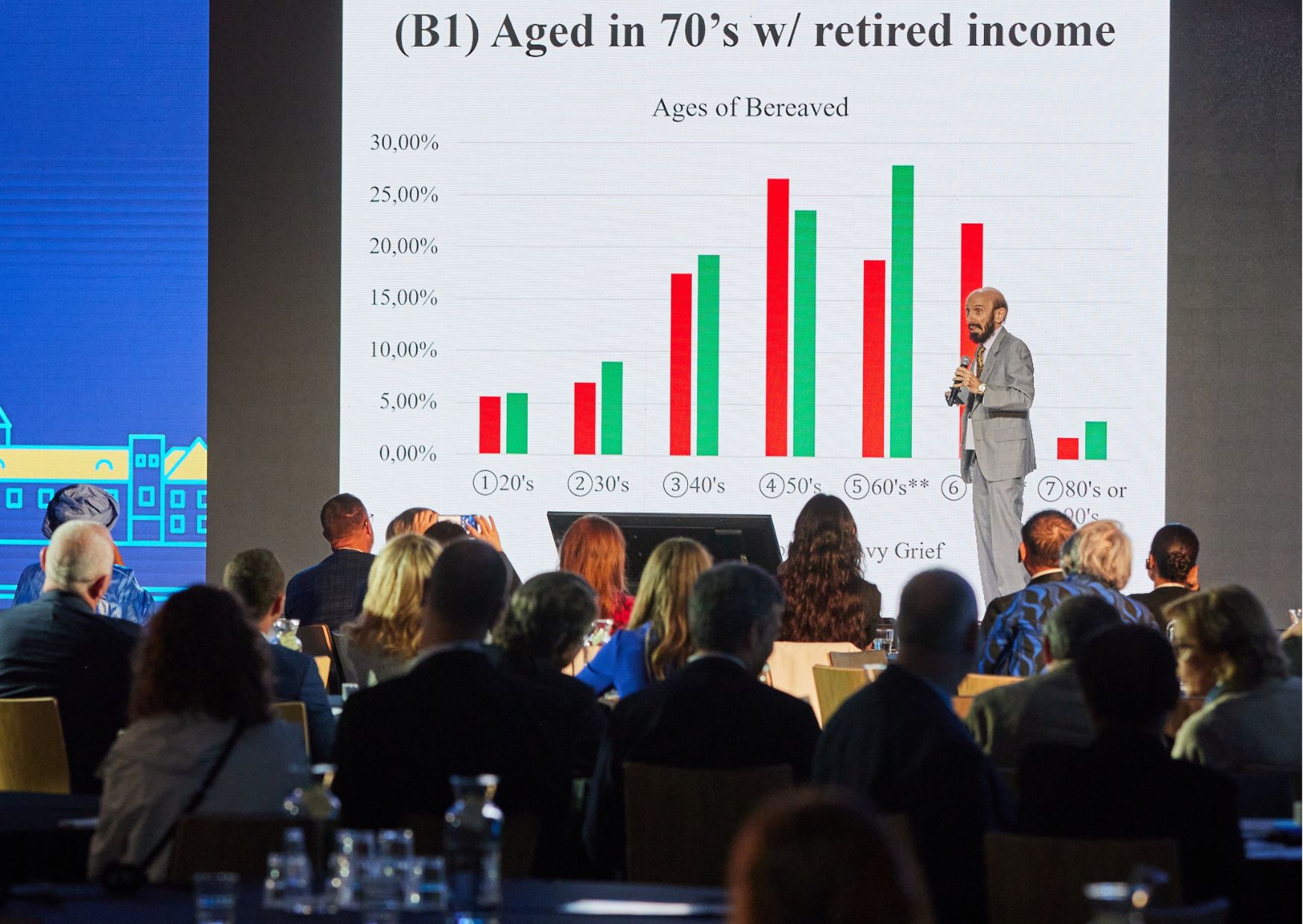Become a member
FIAT-IFTA is the only internationally governed Funeral Federation with National, Active and Associate Members in more than 80 Countries.
By Carl Becker, PhD., D.Psych. Kyoto University School of Medicine, Japan
The more our society ages, the more we need emotionally and socially supportive funerals! Satisfying funeral services not only spare our government huge medical and social welfare expenses, but also can reduce families’ isolation and even mortality. Satisfying funerals are survivors’ last best chance to reunite with supportive family and old friends. Dissatisfying funerals which fail to reunite family and friends are highly predictive of grief complications.

Bereavement costs society
Comans et al (2013) suggests that a typical death bereaves six family and friends, with a minimum cost over $14,000 Australian. Fox (2014) and van den Berg (2016) document huge productivity losses among the bereaved: functioning dropping to 30% at one month after bereavement and only reaching 60% at six months. In 2015, Scotland estimated 55000 spousal deaths alone add a cost of at least 2 million pounds for additional GP medical consultations and 20 million pounds sterling for additional inpatient stays due to bereavement (Stephen et al., 2015). Ornstein’s team (2105, 2019) found more depressive symptoms, entailing higher use of pharmaceuticals among the bereaved, like similar studies showing higher medical care costs among the bereaved (Rolden et al, 2014), more recently confirmed by Lei et al. (2022). So bereavement is not just personal private sadness; it affects national productivity and public health systems - yet economic analyses and countermeasures remain rare.
Funerals can reduce bereavement costs
Kraeer (1981) found 34% of bereaved who held little or no funeral faced grief complications, compared to only 12% who held full funeral services. Wilson (2009) found that inviting many friends and neighbors to home funerals raised community awareness of the needs and situations of the bereaved, and greatly benefited those experiencing disenfranchised grief. Funerals provide the community support that protects mourners from suffering complicated bereavement (Braz & Franco, 2017). Claims that “small funerals do not affect bereaved health” focus on satisfied healthy respondents, but we need to examine effects of funerals on the more troubled sick and dissatisfied grievers.
The All-Japan Bereavement and Funeral Survey
The All-Japan Funeral Directors Co-Operation® distributed questionnaires to recently bereaved families who returned them anonymously to Kyoto University using post-paid envelopes. We received not only 1400 numerical responses for statistical analysis, but also more than 300 handwritten comments. We explained our full findings in our Krakow presentation at FIAT-IFTA Convention 2024.
Statistics find rising medical and pharmaceutical costs
Our survey documented continuing grievers’ ongoing reliance on medical and welfare support. Their grief was not merely emotional, but involved sleep-inducing drugs and antidepressants with potential dependency and rebound. More than 11% of Japanese bereaved reported increased use of medical, pharmacological, and/or financial services: most prominently for bereaved in their ‘50’s, and for unemployed widows. The Japanese most likely to suffer ongoing grief were elders living alone, emotionally close to the deceased. Their monthly medical expenses rose by about 6000 yen per month over the second year after bereavement. Originally high but declining household income also correlated with higher post-bereavement medical and pharmaceutical use, as did funeral dissatisfaction.
Responses find Funeral Dissatisfaction predicts problematic grief. While a satisfying funeral cannot guarantee the health of the bereaved, funeral dissatisfaction strongly predicted heavy grief correlating with medical and psychological problems. Bereaved who desire but cannot receive sufficient psycho-social support through funeral gatherings are at higher risk for subsequent psycho-physical problems. (One respondent wrote that he would have suicided without the emotional support of the funeral director!)
Then we examined anonymized survey responses describing what aspects of funerals caused greatest anxiety to bereaved Japanese, affecting medical/welfare costs for the entire society. The greatest funeral disappointment appeared in (1) attendance (having invited too few people), (2) poor connection to friends and relations, (3) psychological effects of the cremation, (4) inadequate itemization or explanation of funeral costs, and (5) botched rituals. When lacking, insufficient, or ill-handled, these leave long-standing bad memories and dissatisfaction that aggravate mourners’ psychological and physical ailments, costing society as a whole.
The All-Japan survey suggests that funeral directors’ sensitivity to such issues can mitigate funeral dissatisfaction, and so contribute to the national economy, health and social welfare.
FIAT-IFTA is the only internationally governed funeral Federation with National, Active And Associate Members in more than 80 countries.
Subscribe to our newsletter and receive the latest funeral news and Thanos Magazine for free.
Not a member yet? Become a member